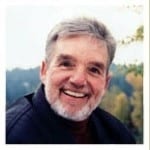Over the years, I’ve had several persons who wanted my counseling, whom I found ravished with shame that manifested in an unusual kind of grandiosity. I connected with them because I have it in a different way myself. Over the years, I came to recognize what I call “reverse grandiosity.” Sometimes after I’d been working the 12-step program (at least five years), I noticed that details of my story had changed. Instead of sneaking out of Catholic seminary (where I was studying for the Catholic priesthood) and walking ten (sometimes 15, once even 20) miles to buy my drug of choice, I was really only walking three blocks.
Ten to 15 miles makes the story sound more dramatic and made my addiction worse than I really was. I wanted to make it sound worse. In fact, I wanted to be the “best worst” in the program. Being the “best worst” was my “reverse grandiosity.” I was the Star, Hero child in my dysfunctional family (capitalized because the family systems need to have their shame diminished).
The clients whom I recognized with “reverse grandiosity” were somewhat different. They were people who claimed that their problems were so complex and unusual that no one had been able to help them. One man expressed it as clearly as possible. He said, “I’m just here to have someone to talk to, my problem is too unique to be alleviated by therapy.” In other words, I’m special that I’m beyond what any humanly designed system of therapy can do. I let him rattle on and offered a follow-up visit. When he returned, I told him that after reflecting on his last visit, I found him pretty boring and quite ordinary. He became enraged when I called him ordinary. He started quickly enumerating every possible abuse that he had endured.
When he ran out of steam, I told him “you take pride in your abuse; you’ve made it sacred and in so doing make yourself superior to everyone else.” These truths stung and my client kept coming back. I relentlessly called him ordinary, and one day he broke down crying. He told me how scared and small he felt. He said he realized that his idealization and attachment to his abuse made him feel like he was somebody superior. I took him to a 12 step meeting where he was introduced to the concept of anonymity.
He soon realized that there were people of every sort in the group – men, women, rich, poor, middle class, lawyers, university professors, artists, laborers, mothers raising children, even a priest, and two ministers. All had the same addiction and while their stories differed in details and they had different IQs, their common problem was the same – they had to stop using the drug they were addicted to that had caused their lives to become unmanageable. We were all simply ordinary human beings ravaged by drug addiction.
Practicing Annonymity
Anonymity is the great spiritual gift of the 12-step program. A Tibetan monk, Tara Tulku Rinpoche once said “the intensity of our sorrow will vary in direct proportion to the intensity of our feeling that “I am important.”
The practice of anonymity is the practice of being nobody special and that is the essence of humility. After 46 years of being free from my addiction, I can testify to the fact that those who know they are nobody special is busy doing the work that all ordinary humans are called to do in order to flourish. Gandhi constantly attested to being an average, ordinary person. When Erik Erikson wrote Gandhi’s Truth (an autobiographical account) he found that Gandhi’s wife and children attested to his flaws and his demanding profession of perfection on them.
Anonymity asks us to give up the idea and energy of trying to be special and different (so that we can be set apart from our fellow humans). Accepting being nobody special freed me from having to live up to demanding images. It freed me to do something I didn’t have to work at, just being myself. Think of what you could let go of and the energy you would have if you stop trying to be somebody special, separate from the rest of us. Take on the amazing spiritual gift of anonymity and allow yourself to relish in the freedom of being ordinary.
About The Author and The Meadows
Mr. Bradshaw has enjoyed a long association with The Meadows as a Senior Fellow, giving insights to staff and patients, speaking at alumni retreats, lecturing to mental health professionals at workshops and seminars, and helping to shape its cutting-edge treatment programs. His New York Times best-selling books include Homecoming: Reclaiming and Championing Your Inner Child, Creating Love, and Healing the Shame That Binds You.
The Meadows is an industry leader in treating trauma and addiction through its inpatient and workshop programs. To learn more about The Meadows’ work with trauma and addiction contact an intake coordinator at (866) 856-1279.
For over 35 years, The Meadows has been a leading trauma and addiction treatment center. In that time, they have helped more than 20,000 patients in one of their three inpatient centers and 25,000 attendees in national workshops. The Meadows world-class team of Senior Fellows, Psychiatrists, Therapists, and Counselors treat the symptoms of addiction and the underlying issues that cause lifelong patterns of self-destructive behavior. The Meadows, with 24-hour nursing and on-site physicians and psychiatrists, is a Level 1 psychiatric hospital that is accredited by the Joint Commission.

